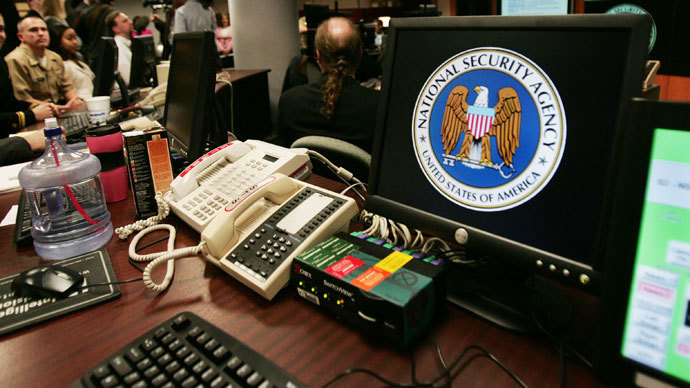New documents have been leaked shining further light on the top-secret surveillance programs operated by the NSA. According to The Guardian, the National Security Agency can retain and use information obtained through domestic communications.
According to two documents published in full by the newspaper on Thursday, the Foreign Intelligence Surveillance Court has approved a handful of policies that allow the National Security Agency to make use of intelligence on United States persons.
President Barack Obama and his administration’s top intelligence chiefs have previously denied the NSA targets American citizens in the wake of classified documents leaked earlier this month.
The two new documents — including one-marked “top-secret” — were both authorized by Attorney General Eric Holder on July 29, 2009, and were leaked two weeks-to-the-day since The Guardian first began publishing NSA papers attributed to former intelligence contractor Edward Snowden. Earlier this month, the American Civil Liberties Union filed a lawsuit against Holder and other Obama administration officials for a number of constitutional rights they alleged to have been violated under the surveillance practices previously disclosed by the newspaper.
The new documents, The Guardian reports, details how the NSA can:
• Keep data that could potentially contain details of US persons for up to five years;
• Retain and make use of "inadvertently acquired" domestic communications if they contain usable intelligence, information on criminal activity, threat of harm to people or property, are encrypted, or are believed to contain any information relevant to cybersecurity;
• Preserve "foreign intelligence information" contained within attorney-client communications;
• Access the content of communications gathered from "U.S. based machine[s]" or phone numbers in order to establish if targets are located in the US, for the purposes of ceasing further surveillance.
These powers vested in the NSA come notwithstanding other provisions included in the documents that discuss safeguards that are meant to be employed in order to avoid targeting US persons.
“The top-secret documents published today detail the circumstances in which data collected on US persons under the foreign intelligence authority must be destroyed, extensive steps analysts must take to try to check targets are outside the US and reveals how US call records are used to help remove US citizens and residents from data collection,” Glenn Greenwald and James Ball write for The Guardian.
The reporters go on to quote from a FISA document they claim to have seen that shows that the secretive intelligence court can compel companies to give the government private data pertaining to US citizens without offering any explanation.
Instead, they write, a FISA judge “declares that the procedures submitted by the attorney general on behalf of the NSA are consistent with US law and the Fourth Amendment.”
Under the FISA Act, the government can warrantlessly eavesdrop on phone and Internet conversations if one of the parties involved is reasonably sought to be outside of the United States. And while the Obama administration insists that surveillance programs authorized by FISA do not target US persons, the latest leak shows that the government can still collect, retain and analyze seized intelligence of Americans even when it’s clear that they are within the country.
"In the absence of specific information regarding whether a target is a United States person," it states "a person reasonably believed to be located outside the United States or whose location is not known will be presumed to be a non-United States person unless such person can be positively identified as a United States person."
“If it later appears that a target is in fact located in the US,” The Guardian reports, “analysts are permitted to look at the content of messages, or listen to phone calls, to establish if this is indeed the case.”
On Wednesday this week, NSA whistleblower Thomas Drake told RT that the FISA authorization process operates essentially as “a rubber stamp court,” and said, “The oversight is simply an artificial mechanism to give the appearance of oversight.”
“They’ve basically unhinged themselves from the Fourth Amendment of the Constitution,” Drake said.

